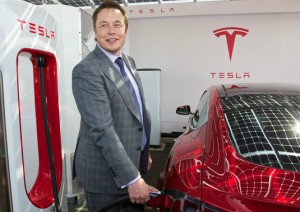Tesla Motors Will Release Its Patents – Should Other Companies Do the Same?
Elon Musk, Chief Executive Officer and Chief Product Officer of electric car producer Tesla Motors, recently announced that Tesla will release its patented technology to the public. Accompanying the announcement, Musk had harsh words for the patent system:
“When I started out with my first company, Zip2, I thought patents were a good thing and worked hard to obtain them. And maybe they were good long ago, but too often these days they serve merely to stifle progress, entrench the positions of giant corporations and enrich those in the legal profession, rather than the actual inventors.”
“After Zip2, when I realized that receiving a patent really just meant that you bought a lottery ticket to a lawsuit, I avoided them whenever possible.”
The patent system was created to encourage innovation by granting inventors the exclusive right to sell or practice a product, design, or process. But Tesla recognizes that certain companies can benefit from non-exclusivity. Musk said,
“We believe that Tesla, other companies making electric cars, and the world would all benefit from a common, rapidly-evolving technology platform.”
Tesla already enjoys a competitive advantage in the electric car space because of its pool of engineers and manufacturing facilities. Tesla needs a mainstream marketplace for its cars more than it needs exclusivity. Enter Ford, BMW, and Toyota. If the major car companies start mass-producing electric cars, Tesla will have more potential customers, and it will encourage companies to build charging stations and other infrastructure necessary for electric cars to flourish. If Tesla’s technology platform becomes the industry standard, Tesla can also sell its batteries and other components to other electric car manufacturers.
But while an open-source model may work for Tesla, inventors and start-ups trying to break into a market should continue to pursue patents for their innovations. Exclusivity can give a fledging company the competitive advantage its needs to grow, where it would otherwise be crushed by the entrenched heavyweights.
Patents have other benefits beyond exclusivity. A patent may be necessary if you intend to license your invention. If you are seeking investment, a patent may make your company more attractive to investors or venture capital firms. Patents can also be sold or used as collateral for loans or other financing. Musk admits that Tesla used its patents to obtain financing in the early days of Tesla.
Other innovative companies, like Apple, have aggressively defended their intellectual property, most notably through its recent high-profile lawsuits against Samsung over mobile phone technology. It remains to be seen whether other tech giants will follow Tesla’s lead. But for the majority of inventors and start-ups, a patent continues to be the tried and true way to bring new ideas to the market.


Comments